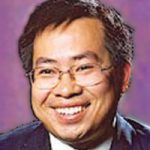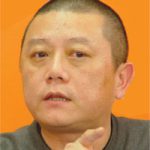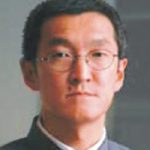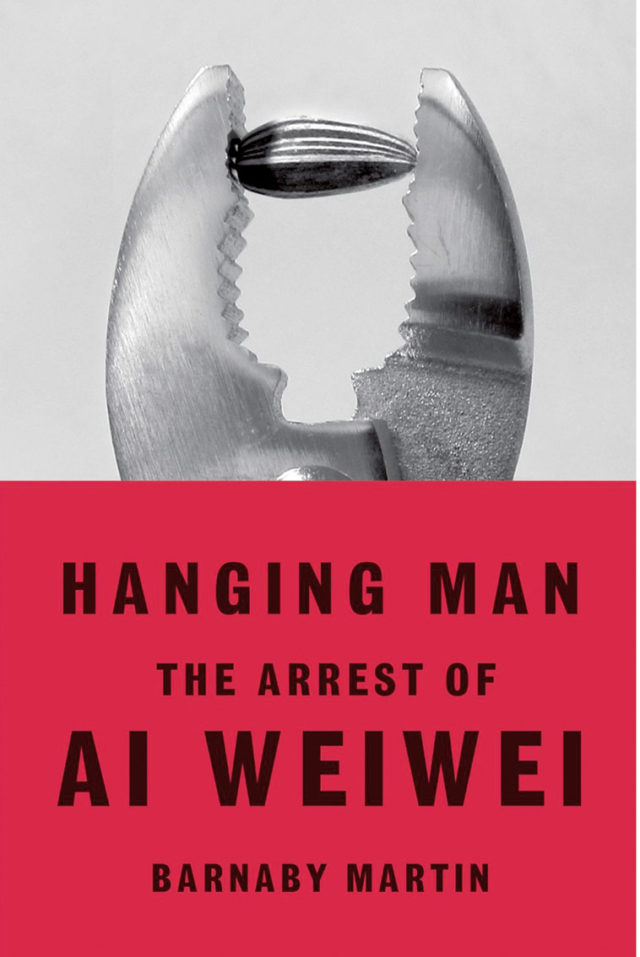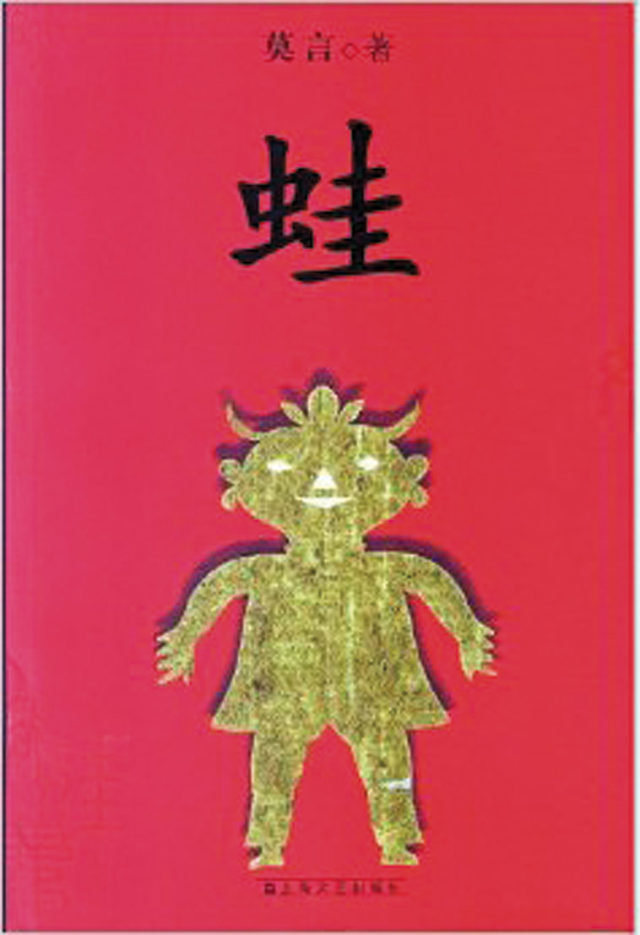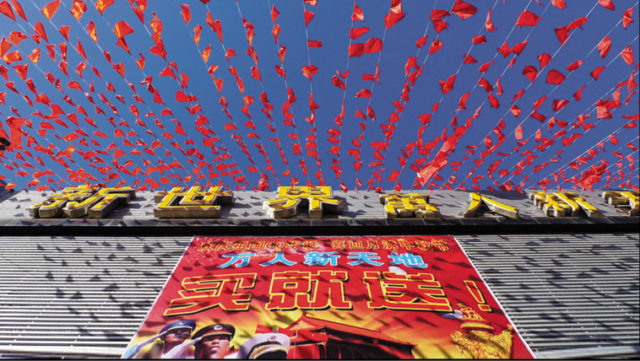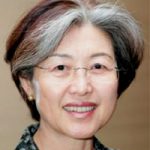
In China, digital technology has enabled the spread of independent opinion but public culture remains under strict and increasingly sophisticated state control. In 2012, many people spoke of a growing gulf between the language of ordinary citizens and that of the Chinese government. This chapter begins with observations about the recent popular online demand for those in power to ‘speak like real people’ and then explores more broadly recent developments in language under one-party rule. It draws on examples of official, intellectual and popular communications that have attracted commentary, controversy or widespread notice. The analysis highlights the different ways in which public language in China bears the imprint of authoritarian power.
‘Speak like a real person!’ (shuo renhua 说人话, literally ‘speak human language’) became a popular catchphrase in China in 2012. In a January 2013 interview, Ha Wen — a leading media personality and director of China Central Television’s annual Spring Festival Gala (Chunjie lianhuan wanhui 春节联欢晚会, or Chunwan 春晚 for short) — jokingly assured the 700 million-strong audience of the world’s most-watched television extravaganza that its hosts would ‘most definitely speak like real people’. For weeks, numerous articles in China’s state-guided media hailed Ha’s endorsement of ‘human language’. But Ha Wen’s jokey use of the term conveyed little of the critical reproach inherent in popular use that posits ‘human language’ (renhua 人话) as the opposite of the ‘inhuman language’ of the Party, seen as wooden and propagandistic. Ha co-opted the term, promising honest and natural communication only so as better to present a genial image of life under one-party rule.
The annual state-funded Spring Festival Gala that marks the Chinese New Year is a highlight in the mainland cultural calendar. It is also an occasion for eulogising the Communist Party in glitzy song and dance. The 2013 Gala featured, for instance, a choral tribute to ‘Great China and the Great Party’ (Weidade Zhongguo, weidade dang 伟大的中国,伟大的党), performed by hundreds of uniformed choristers arrayed in colour blocks representing the Chinese army, navy and air force.
From an official point of view, ‘human language’, as one article explains, means ‘conveying a sense of people’s lives, drawing close to the masses and speaking in down-to-earth as opposed to high-falutin ways’. It purposefully distances itself from the Mao-era slogans that were used to launch mass mobilisation campaigns and stir political passions and attempts a more savvy approach — public relations rather than propaganda — to boost the government’s image with a discontented public.
While wide-ranging online debate shapes and reflects popular discourse, the state media, for all its avowed efforts to ‘speak human language’, to use the official formulation, mostly ‘maintains a unified caliber’: it stays ‘on message’. Observations on the growing gulf between official and everyday uses of the Chinese language (putonghua 普通话 as well as the other languages and dialects of the People’s Republic) have fuelled the ‘human language’ debate. The acclaimed novelist Yan Lianke (whose novel Serve the People [Wei renmin fuwu 为人民服务] depicts a wild, illicit love affair during the Cultural Revolution in which the characters turn each other on by spouting Maoist slogans) puts it this way:
Boy in an imitation Red Army uniform with ‘Serve the People’ slogan printed on his bag.
Source: ImagineChinaLies, meaningless words and pretentious-sounding blather become the official language used by the government, taught by our teachers and adopted by the world of art and literature. This kind of language is also creeping into the lives of ordinary people. There are currently two conflicting language systems in China. One belongs to the state, the other to ordinary people.
Why? Why are ordinary people repeatedly calling for government officials to ‘speak human language’ and ‘do human things’? These requests reflect people’s resistance to the official version of memories that has been administered to them. The state is not the only player to be blamed for the nation’s amnesia in today’s China. We must also look at Chinese intellectuals, as we appear to be content with this forced amnesia.
These words are part of an op-ed by Yan published in English translation in the New York Times on 1 April 2013. The Beijing-based author has, so far, not released the original Chinese text. In China, news of the article and its web link soon appeared in a variety of Weibo posts. With rising levels of English-language sophistication in China, even translated dissent only accessible via proxy servers has become an important part of social criticism.
In the essay, Yan speaks of ‘two conflicting language systems’ to highlight the difference between the interests of the state and what Chinese citizens want. This neat opposition obscures, however, the intricate dynamics of mainland public discourse. In vocabulary and idiom, official and non-official uses of Chinese are highly interdependent. When people proudly call themselves ‘ordinary’ (putongren 普通人), they draw on the Communist sense of ‘the masses’ (qunzhong 群众). Similarly, when they identify as ‘Chinese’, or speak of belonging to ‘China’ and ‘Chinese civilisation’, they draw on phrases in the official language that have powerful political and cultural connotations that may differ from those of previous historical eras.
On the one hand, the Chinese people on- and off-line may frequently ridicule official language; on the other, its formulations of ideals and values — what is known by some as ‘New China Newspeak’ (Xinhua wenti 新华文体) — have helped to shape how Chinese people today understand notions of community and social wellbeing. Even when people diverge from the state in their views, party formulations and linguistic tutelage still leave their marks on the way they express their criticisms and hopes.
Official Formulations
Under Mao, the ruling slogan was that the Communist Party had to ‘serve the people’ (wei renmin fuwu 为人民服务). Expressions of ‘wholehearted devotion’ to and ‘resolute support’ for the collective and national good prevailed. Over the decades of economic reform since the late 1970s, such phrases have become rhetorical staples in commercials and product endorsements. ‘To serve customers with wholehearted devotion’ (quanxin quanyi wei guke fuwu 全心全意为顾客服务) is a popular motto of retailers and restaurants in China, including the fast-food giant McDonalds. Moreover, with rising public concern over food safety, food manufacturers have publicised the fact that they ‘resolutely support’ (jianjue zhichi 坚决支持) the government’s crackdown on food safety violations. As handy declarations of dedication to the stated mission of a company, office or organisation, these expressions also routinely feature in applications for jobs and promotions and in sales and motivational training. Workers in offices, restaurants and factories also perform daily team-building exercises that combine Maoist-style exhortations with slick jargon adapted from the global business world.
The call to be ‘absolutely unwavering’ (haobu dongyao 毫不动摇) made its debut on 23 July 2012 in a speech by then Party General Secretary Hu Jintao. Hu was addressing senior party and military cadres at a meeting in Beijing. He admonished ‘the whole party membership and the entire nation’ to show themselves to be ‘absolutely unwavering’ on three matters:
- resolute support for and development of Socialism with Chinese Characteristics
- advancement along the path of Socialism with Chinese Characteristics
- active promotion of Reform and Opening Up.
The state media promptly designated this an ‘important speech’ (identifying it as mandatory reading).
Hu’s fondness for stilted hyperbole is well known. With the ‘three absolute unwaverings’, he attempted to convey a genuine commitment to improved governance and transparency. The early months of 2012 had been a trying time for China’s Party leaders, as we noted in China Story Yearbook 2012. Rumour and gossip surrounding the arrest of Chongqing’s former Party Secretary, Bo Xilai, and his lawyer-businesswoman wife Gu Kailai, had thrust a government long accustomed to operating behind closed doors into the glare of international media attention. The ‘Bo Xilai affair’ inspired a stream of investigative reporting and opinion in Chinese, English and other languages about corruption, divisions and intrigues at the highest levels of government. State censorship proved no match for these global media flows.
The ‘left’ and the ‘right’ are flexible terms in party discourse. Prior to his downfall, the media-savvy Bo and his widely-publicised ‘Red Culture’ campaigns, which featured the mass choral singing of patriotic songs, study sessions and patriotic rallies enjoyed enormous grassroots appeal. Bo and his supporters had presented themselves as true Communists. Their ‘social justice’ parlance diverged conspicuously from the ‘harmonious society’ rhetoric of China’s two top office-holders, Hu and Premier Wen Jiabao. While a rift grew between the rhetoric of Bo on the ‘left’ and Hu and Wen on the ‘right’ neither side openly attacked the other. Whatever the state of factional warfare, both sides prudently displayed ‘unwavering’ unity under the Party.
Online commentators enjoyed pillorying Hu Jintao’s unimaginative slogans; ‘facially paralysed emperor’ (miantan di 面瘫帝) remains a popular nickname for the po-faced leader. The phrase ‘three absolute unwaverings’ was reminiscent of ‘the three unwaverings’ that Hu had first used when he toured Xinjiang in August 2009. Ethnic tensions run deep in this autonomous region, the homeland of the Uyghurs. That year on 5 July, violent riots broke out between Han Chinese and Uyghurs in which, according to official figures, 197 people died and 1,721 were injured. A harsh crackdown on Uyghur activists followed. In an August 2009 speech in Ürümqi, Hu urged the people of Xinjiang to defend ‘unwaveringly’ economic construction, social stability and ‘the coming-together of the various nationalities in unified struggle’. The slogan attracted a riposte posted by a blogger called Zhuoran Yimeng (What a Dream) that ‘the real three unwaverings’ are:
- the government’s corrupt dealings at home
- its congenial attitude to foreign bullying
- abiding dishonesty when confronted with media revelations about official wrongdoing.
As 2012 was Hu’s final year in office, the ‘three absolute unwaverings’ became his parting legacy. When the long-planned transition to the new leadership took place at the Eighteenth Party Congress in November 2012, the media in and outside China highlighted the plain-speaking talents of Hu’s successor, Xi Jinping. China’s state media in particular lauded his relaxed and forthright spoken style. They widely quoted the Vice-President of the China Institute of International Studies, Ruan Zongze, who praised Xi’s style as ‘frank and sensible’ and as giving people the feeling ‘he is actually speaking, not reading from a script’, thereby ‘winning greater acceptance’. The veiled barb at Hu Jintao’s wooden language was unmistakable.
That’s not to say that the vast majority of Xi’s public utterances and internal speeches are not cluttered with the wooden verbiage of partyspeak. Even Xi’s homely metaphors have inspired their fair share of derision among netizens. Speaking in Moscow on 23 March 2013, he defended one-party rule as ‘the right of each country in the world independently to choose its own path of development’. Xi then attempted a quip: ‘Only the wearer knows if the shoe fits his foot’ (xiezi he bu he jiao chuanzhe cai zhidao 鞋子合不合脚穿着才知道). A flurry of sardonic comments soon appeared on the Internet. They ranged from: ‘You let your family wear comfortable shoes while compelling ours to wear worn-out shoes of the wrong size’ to ‘If the shoe doesn’t fit what is to be done? Give me a new pair or cut my foot down to size?’ There were longer rejoinders, such as: ‘Yes, indeed. So, when I’m at a store shopping for shoes, I’ll first try them on. If they don’t fit, I’ll immediately abandon them, no matter what brand they are. If you want to stick to a certain brand, finding the correct size becomes a bit more difficult, does it not?’ The Theory of Suitable Shoes (he xie lun 合鞋论) quickly replaced Hu Jintao’s hoary formulation about creating Harmony (hexie lun 和谐论) for which it was a homonym.
Flying the Red Flag to Oppose the Red Flag
Open mockery of official pronouncements is common; acts of true opposition are rare. For one thing, expressions of online scorn are fleeting, mostly pseudonymous and generally unaccompanied by political action. For another, the tertiary-educated people who make up the majority of China’s most vocal netizens have complex attitudes towards the Party. Party membership can undeniably boost a person’s career prospects. Among university students, the standard phrase, ‘the question of entering the Party’ (ru dang wenti 入党问题), formulated in the same way as one might talk about ‘the question about your career’ (jiuye wenti 就业问题), reflects its importance as a life issue. The latest official statistics from 2011 show China’s tertiary enrolments at 31.67 million. Chinese Communist Party membership in 2011 exceeded 82.6 million, of which people with tertiary qualifications were by far the largest group at 38.6 percent.
Of China’s 31.67 million tertiary students, 8.77 percent (2.778 million) were party members.
The process of getting a tertiary education in China involves intensive exposure to officially worded texts and practice in parroting. Students do well by learning to mimic the officially ‘correct’ style of expression in their essays and examination answers. Graduates who go on to become academics, journalists, writers or who are otherwise involved with publishing are highly attentive and sensitive to nuances in official texts. It’s common in China to refer to people in these professions as ‘intellectuals’ (zhishifenzi 知识分子) — a value-laden category that implies that they will, as educated people, produce ideas beneficial to society and the nation. For the first decade after the economic reforms began in 1978, many intellectuals saw themselves as nobly engaged with the official mission of ‘liberating thought’ (sixiang jiefang 思想解放) from the rigid dogmas of class struggle under Mao and helping to set China on a course to modernisation. After the brutal suppression of the mass, nationwide protest movement in Beijing and other cities on 4 June 1989, disillusion set in, and there was much soul-searching in educated circles about what the ‘liberation’ of thought had achieved.
Over the last decade or so, the Internet has exponentially broadened and democratised public discourse — previously the unique preserve of ‘intellectuals’. This has greatly complicated what it means to be considered an intellectual. In 2000, the novelist Wang Shuo coined the sardonic term ‘knowers’, or ‘know-it-alls’ (zhidaofenzi 知道分子); netizens now commonly use the expression to mock intellectuals whose online writings attract public notice. The implication is that these individuals attract attention because they are well connected and ‘know a thing or two’, but that their writings are hollow rhetoric. Many netizens don’t discriminate between people who are merely publicity-hungry and those who are genuinely socially committed and politically engaged; ‘knowing’ also alludes to the coded and oblique language that people use to avoid official censorship.
For instance, when in April 2013 the highly regarded editor-in-chief of Caixin Media, Hu Shuli, reminded the new party leadership of its commitment to ‘opening up’, it was clear that she was indirectly criticising the increased policing and censorship under the previous Hu–Wen administration. She wrote abstractly of how ‘in the realms of opinion and practice’, China had in recent years displayed a ‘tendency toward closed-door reform and timid opening up’ (guanmen gaige, xiaoxin kaifangde qingxiang 关门改革, 小心开放的倾向). Observing that the newly incumbent Premier Li Keqiang had highlighted ‘opening up’ in his speeches, she expressed her hope for greater freedoms with the phrase ‘guide reform by opening up’ (kaifang cu gaige 开放促改革).
Hu Shuli’s editorial shares stylistic similarities with the many classified research reports prepared exclusively as advisory documents for senior officials. The latter are solicited efforts to ‘aid governance’ (zizhi 资治: a dynastic-era Confucian term that dignifies the undertakings of thinking people to offer policy guidance for the rulers). Hu Shuli’s uninvited open counsel conveys disapproval. The controversial, three-part online article by Deng Yuwen, ‘The Political Legacy of Hu-Wen’, that was published between late August and early September 2012, offers another striking example of an intellectual using the government’s own idiom to criticise its policies.
Claiming Authority
Authority and power are related but different. Online mockery of the party-state points to an erosion of its authority, a situation intellectuals like to describe as ‘the crisis of political legitimacy’ (zhengzhi zhengdangxing weiji 政治正当性危机). Yet the party-state system remains in power: its massive bureaucratic complex affects all aspects of the Chinese economy and society.
The government’s authority was founded on freeing the oppressed, but it now rules in defence of ‘Socialism with Chinese Characteristics’, ‘Harmony’, ‘Stability’ and, more recently, the ‘China Dream’. Whereas the ‘left’ or neo-Maoist activists use Mao-era rhetoric, the rival ‘right’ prefers the idiom of ‘modernisation’ and ‘liberalisation’. If some on the left have become increasingly vociferous in their attacks on their ideological enemies, both eschew the politics of ‘class struggle’ and sidestep emancipatory language. ‘Civilisation’ — more specifically ‘Socialist Civilisation’ — has displaced ‘Communism’ as the Party’s mission and the basis of its authority.
If Socialist Civilisation is also what makes China unique, then the authority of the government gets a further boost, as it becomes the protector and promoter of China’s uniqueness, both as a culture and as a political and economic model. Among the commentators engaged with this aspect of the party-state’s authority are proponents of a Confucian path for China. Two have recently attracted special notice: the controversial scholar Jiang Qing, founding director of the privately funded Yangming Confucian Academy (Yangming jingshe 阳明精舍) in Guiyang, Guizhou province, and Kang Xiaoguang, founding director of the Non-Profit Organization Research Centre at Renmin University in Beijing.
In July 2012, an article in the New York Times coauthored by Jiang and Daniel A. Bell, a Canadian professor of philosophy at Tsinghua University in Beijing, became the subject of animated discussion in China and internationally. Titled ‘A Confucian Constitution for China’, it was a manifesto defending one-party rule as compatible with China’s ‘Confucian tradition’. The authors described democracy as a flawed system; they proposed that the current party-state system in China could be improved to reflect better a Confucian-inspired ‘Way of the Humane Authority’ (rendao 仁道). They called for the establishment of a tricameral legislature. There would be ‘a House of Exemplary Persons that represents sacred legitimacy’. Its Confucian leader, ‘a great scholar’, and members would be ‘nominated by scholars and examined on their knowledge of the Confucian classics and then assessed through trial periods of progressively greater administrative responsibilities’. A descendant of Confucius would lead ‘a House of the Nation that represents historical and cultural legitimacy’, whose members would also be descendants of other ‘great sages and rulers’; and finally, there would be ‘a House of the People that represents popular legitimacy’, whose members would be ‘elected either by popular vote or as heads of occupational groups’.
The article immediately began to circulate on the Internet in Chinese translation. The prominent independent thinker and historian Zhang Lifan offered a subtle Weibo riposte. He quoted the authors’ proposed tricameral legislature without comment — to convey speechless incredulity — adding only the Chinese word for snigger (touxiao 偷笑) in parenthesis at the end. Below the quote, Zhang placed a cartoon of the nine-metre tall Confucius statue that had stood in Tiananmen Square from January to April 2011 before it was removed without explanation. The statue had attracted controversy: as mentioned in the 2012 Yearbook, an official opinion poll in January 2011 indicated that ‘some sixty-two percent of the 820,000 respondents expressed opposition to it’. The cartoon shows a cameraman filming a beaming journalist interviewing the statue. Comments on Zhang’s post include: ‘These gentlemen have water on the brain, a most atypical madness’, and ‘Isn’t this just a copy of Iran’s Islamic Constitution? No originality whatsoever.’
Daniel Bell’s role in publicising Jiang’s work in English translation has been crucial. More importantly, he has helped to secure academic authority for Jiang’s often flamboyant assertions about Confucianism: in 2012 Princeton University Press published A Confucian Constitutional Order: How China’s ancient past can shape its political future, authored by Jiang and coedited by Bell. On 28 November 2012, David Bandurski of the China Media Project at the University of Hong Kong wrote a critical review of Bell’s work that attracted notice on Twitter and discussion lists. The article, ‘For whom Mr Bell tolls’, appeared two weeks after the conclusion of the Eighteenth Party Congress. Quoting Bell’s praise for the Chinese party-state’s ‘gruelling process of talent selection’ in ensuring that ‘only those with an excellent record of past performance are likely to make it to the highest levels of government’, Bandurski observed:
Mr. Bell may not know … that [the newly appointed Premier] Li Keqiang presided over one of the worst AIDS epidemics in history. He was responsible for the cover-up of the epidemic, which resulted from a blood trade in which government officials were involved. Does that, I wonder, make Li more or less qualified to deal with this pressing health issue? Should Li’s actions to cover up the scandal be construed as ‘morally informed judgements’?
In March 2013, Kang Xiaoguang published a new edition of his 2010 ‘Outline of Confucian Constitutionalism’ (Rujia xianzheng lungang 儒家宪政论纲). Like Jiang and Bell, Kang proposes a new model of one-party rule based on Confucian principles. He begins by noting that for decades China has faced ‘a crisis of political legitimacy’, ever since Deng Xiaoping’s market reforms undermined ‘the Marxist basis of the Communist Party’s right to rule’. Better to replace this now ‘unconvincing’ ideology, he argues, with Confucianism as the state religion, reprising an idea first championed by the late-Qing scholar-activist Kang Youwei (1858–1927). (Kang’s ideas were far from old-style Confucianism, however: he also advocated women’s emancipation and one-year marriage contracts, an end to property and traditional family structures and proposed dissolving all political borders so that the world could come under one democratic government, among other things.)
The present-day Kang argues the ‘benevolent government’ (renzheng 仁政) that reflects the ‘moral lineage’ (daotong 道统) of the Confucian classics is essential for China’s survival as a civilisation. He claims that Confucianism is compatible with democracy and human rights to the extent they conform to Confucian definitions of benevolence and justice. Moreover, Confucianism is a broad church ‘capable of accommodating a multi-party system, competitive general elections, the separation of powers and ideas of limited government, and so encourages a merging of ancient and modern’. Kang believes that as ‘international competition among nation-states continues to intensify’, China’s survival depends on it becoming a contemporary Confucian civilisation.
These Confucian proposals are a leap too far for the leadership of the Communist Party, which at its Eighteenth Congress reiterated its unwavering commitment to ‘Marxism–Leninism, Mao Zedong Thought, Deng Xiaoping Theory and the important thought of [Jiang Zemin’s] Three Represents’. Nonetheless, it has its uses for the notion of defending one-party rule as a Confucian legacy. On the Internet, exasperated critics deride the advocates of Confucian constitutionalism as ‘knowers’ and ‘living specimens’ of intellectual betrayal, accusing them of strengthening authoritarian rule and diminishing China’s democratic prospects. In this they echo, consciously or not, the concerns of the thinkers behind the May Fourth Movement of 1919 who saw Confucianism as holding China back not just from democracy, but from modernisation and science as well.
In a mid-2012 interview in English, the dissident artist Ai Weiwei remarked: ‘The emphasis on Confucianism is the last cry of this Party.’ He saw Confucianism as synonymous with ‘social order’ and thus well-suited for one-party rule. Describing China as ‘a society with no creativity, a society with no imagination, a society that cannot meet the challenges of the international struggle’, Ai concludes: ‘for us Chinese, the tragedy we have today exists because of Confucianism’.
Kultur Bytes
Fondly nicknamed ‘God Ai’ (Ai shen 艾神) by his Chinese fans, Ai Weiwei has been prevented from leaving China since his eighty-one-day detention from 3 April to 22 June 2011. His admirers outside China have kept the media’s attention on both his art and his political causes. The Hirshhorn Museum in Washington DC put on a major exhibition of his work from 7 October 2012 to 24 February 2013 and the Hampstead Theatre in London staged the play The Arrest of Ai Weiwei from 11 April to 18 May 2013. In April 2013, Faber & Faber published Barnaby Martin’s The Hanging Man: The arrest of Ai Weiwei, just several months after Princeton University Press came out with his little book of Weiwei-isms. An adept self-publicist, Ai is active on Twitter, where (at the time of writing) he had 222,041 followers. He also frequently uploads YouTube video footage of his activities and has in May 2013, released his first self-styled ‘heavy metal’ music video, ‘Dumbass’, with scenes that recreate or draw on his period in detention.
In parodic homage to police surveillance of his home, Ai streamed continuous live coverage of himself (‘WeiweiCam’) for more than twenty-four hours in July 2012, stopping only when the police intervened. This brief and chilling political send-up was all but forgotten in late October 2012 in the wake of a far more accessible work: a video of Ai and his friends dancing to the phenomenally successful YouTube hit song by the Korean singer Psy, Gangnam Style. Ai’s video, titled ‘Grass Mud Horse Style’ (Caonima style 草泥马 style) after the popular Internet anti-censorship meme, became a minor YouTube sensation in its own right. Viewed more than 350,000 times, mostly outside China, one day after it was uploaded, it remained, like the rest of YouTube, outside the Great Firewall.
At the opposite pole to Ai Weiwei is the novelist Mo Yan. In October 2012, Mo (original name Guan Moye) — a prominent writer and Vice-Chairman of the state-run Chinese Writers’ Association (a largely ceremonial position) — was awarded the Nobel Prize in Literature. The Chinese blogosphere greeted the news with ambivalence. Whereas Ai has turned ‘baring the truth’ into his signature trait (his art, which often features images of naked flesh, literalises the idea), Mo Yan’s critiques of contemporary society and politics are encoded in his novels in the form of black humour and dark satire. Though his novel Frogs (Wa 蛙) won the prestigious Chinese Writers’ Association-sponsored Mao Dun Literature Prize (Mao Dun wenxue jiang 茅盾文学奖) in 2011, his work has also tackled tough subjects from China’s past and present and, as in the case of Big Breasts and Wide Hips (Feng ru fei tun 丰乳肥臀), has at times been banned by the authorities.
Of Mo Yan’s works, the literary scholar Perry Link has written: ‘The animal nature of human beings — eating, excreting, fighting, screaming, bleeding, sweating, fornicating — abounds, as do certain traits that animals eschew, such as bullying, conniving, and betraying’. Mo Yan has never publicly criticised the Party. In 2012, he even contributed to a project to copy out Mao’s famous 1942 ‘Yan’an Talks on Literature and Art’ (Yan’an wenyi zuotanhuishangde jianghua 延安文艺座谈会上的讲话) as part of commemorations of the seventieth anniversary of the speech in May 2012. This act took central place in the debate over his literary conscience. The ‘Talks’ became party dogma after the founding of the People’s Republic in 1949. They have been used as the basis for widespread literary and artistic control ever since, and they provide the key theoretical foundation for party-state cultural policy even today. Mo Yan’s participation in the project suggested to critics that he was too comfortable with government restrictions on literary expression.
In his Nobel acceptance speech, Mo Yan likened censorship to airport security checks, infuriating all those who hoped that he might use his position to speak out for freedom of expression and his fellow Chinese Nobel Laureate, the imprisoned dissident Liu Xiaobo. His Nobel address, ‘Storytellers’ (Jiang gushide ren 讲故事的人), avoided ideological themes. It concluded with three parables that were interpreted as either defending or attacking the status quo, depending on the stance of the observer. Salman Rushdie labelled him a ‘patsy of the regime’ and Ai Weiwei called the Nobel ‘an insult to humanity and to literature’.
Mo Yan’s nom-de-plume means ‘Don’t Talk’. In 2009, he said that if people insisted on calling him a ‘state writer’ they should say the same of other successful writers who also receive their salaries from the Ministry of Culture (he named Yu Hua and Su Tong). He said that he relied on his state job for health and social insurance; that without it, he could not afford to get sick. He remarked that while ‘being scolded by foreigners is understandable’, implying that non-Chinese critics who led privileged lives and enjoyed ‘universal social security’ couldn’t be expected to comprehend his predicament, ‘the rebuke of fellow-Chinese is downright offensive’.
In the online commotion over Mo Yan’s Nobel Prize, people were consumed by the question of whether he was fit to represent China. Supporters extolled his literary genius; detractors complained that the Nobel committee had made a poor, even unconscionable choice. The Foreign Ministry spokesperson, Hong Lei, by contrast, congratulated the writer on behalf of the nation. He noted that Mo Yan had received China’s highest literary award, the Mao Dun Prize, the previous year, and stated that the added honour of the Nobel award gave ‘people the world over’ an opportunity ‘to deepen their understanding of Chinese culture and to feel the magic of Chinese literature at its best’. Referring to Liu Xiaobo’s 2009 Nobel Peace Prize, Hong Lei reiterated on that occasion, the Nobel committee had committed ‘a serious violation of China’s internal politics and judicial sovereignty’, damaging relations between China and Norway. The comparison implied that Mo Yan’s Nobel award had helped to heal this ongoing injury.
The sharp-tongued blogger Wei Yingjie, meanwhile, posted a comment that was widely relayed on both foreign and Chinese social media: ‘I’ve read so many appraisals of Mo Yan and none is as accurate as his self-appraisal: “In my daily life, I may be a flunky, a coward and a miserable worm, but when I write, I have the gall to take what I want, have as much sex as I want and be as outrageous as I want.” This sums up Mo Yan’s philosophy of life.’ Using a humorously self-deprecating remark Mo Yan made in 2005, Wei painted a caricature of a man who was a political conformist — a writer whose displaced aggression is akin to that of an obedient servant, one fearful of his master. Another detractor was Li Jie. A novelist and cultural critic now based in New York, Li argued that Mo Yan’s work presents a distorted picture of Chinese rural life that is praised overseas because it deliberately caters to Western prejudices about China.
Defenders of the award, like Renmin University professor of literature Ding Guoqi, interpreted Mo Yan’s win as an inevitable consequence of China’s rise in international stature and a well-deserved recognition of its cultural power. The veteran literary theorist Liu Zaifu — who had championed the self-exiled playwright and novelist Gao Xingjian’s Nobel Prize in 2000 — defended the relevance and literary merit of Mo Yan’s work, demonstrating that not every response fell along predictable or partisan lines. The book-buying public, meanwhile, propelled new editions of his back catalogue onto the bestseller lists, and turned his hometown of Gaomi, Shandong province into a site of pilgrimage. Plans for a Mo Yan-related literary theme park have also been mooted.
Bedeviled
Authoritarian politics and their complications may bedevil Mo Yan’s ‘hallucinatory realism’ (the term the Nobel committee chose to describe his oeuvre). But when tens of thousands of Chinese utilise the language of patriotism to vent their unhappiness, the party-state finds itself bedevilled. In mid-August 2012, Chinese anger erupted once more against Japanese claims on the disputed Diaoyu/Senkaku Islands. Online and on the street, calls to attack and kill ‘Japanese devils’, ‘little devils’ or simply ‘devils’ rang out uncensored. This time, appeals to ‘Chairman Mao’ or ‘Grandpa Mao’ as the nation’s protector added a new twist to Chinese hate speech. Evoking Mao indirectly implied that the current party leadership was too weak to do anything to protect national sovereignty. Netizens also incorporated jibes at official corruption and at the loathed urban law enforcement officers or chengguan: ‘Give us three thousand chengguan and we’ll take back the Diaoyu Islands, give us five hundred corrupt officials and little Japan would be ruined for sure’.
In China, patriotic ardour excuses both barbed wit and racial abuse. ‘Devil’ (guizi 鬼子) might be a common, even harmless Chinese swearword in normal circumstances: even children can be scolded for being ‘little devils’. But it is loaded in the context of speaking about Japanese, evoking language common in the eight-year war against the brutal Japanese occupation that only came to an end with Japan’s defeat in World War II. In a second wave of the anti-Japan protests in September 2012, verbal abuse escalated into violent physical attacks on people and property. The estimated cost of the damage to Japanese businesses, cars (including those with Chinese owners), factories and restaurants and reduced sales of Japanese goods in China exceeded US$100 million. That racial abuse mostly goes unchallenged in China and is treated as ‘ordinary language’ even by advocates of ‘human language’ greatly complicates the appeal to ‘speak like real people’ in the People’s Republic today. There is little acknowledgment in official or unofficial media or Internet discussions that the use of ‘devil’ when referring to non-Chinese people in a non-jocular or non-familiar context is racially prejudicial language. Even Ai Weiwei can fall into this trap. In October 2012, on receiving news of Mo Yan’s Nobel award, Ai Weiwei sent this Tweet in Chinese: ‘If the Swedish Academy is vying with the Chinese Writers’ Association to see who’s the more contemptible, this round goes to the foreign devils’ (Ruidian wenxueyuan ruguo weile yu Zhongguo zuoxie bi shei geng jian, zhe yi lun yangguizi yingle 瑞典文学院如果为了与中国作协比谁更贱,这一轮洋鬼子赢了).
‘Humans’ and ‘devils’ have long been paired in Chinese to distinguish known from unknown, friend from enemy. Cursing foreign devils, whether generically or by nationality, was once an expression of helpless rage in the face of a powerful foe. Party doctrine, first under the Nationalists then the Communist Party, nurtured that rage. To be ‘human’ accordingly meant to be willing to destroy the ‘inhuman’.
At the height of the Cultural Revolution from the mid-1960s, the human/inhuman binary, now applied to internal enemies, was employed to justify violence and murder on an apocalyptic scale. The result of ‘resolving contradictions between ourselves and the enemy’ (jiejue diwo maodun 解决敌我矛盾) was a death toll estimated by the sociologists Andrew Walder and Yang Su in a 2003 publication at ‘between 750,000 and 1.5 million, with roughly equal numbers permanently injured’. In 1979, the eminent journalist Liu Binyan (1925–2005) wrote powerfully of an extensive racketeering ring in Heilongjiang province that had profitted from the lawless Cultural Revolution years. Titled ‘Between people and monsters’ (Ren yao zhi jian 人妖之间), Liu’s reportage was widely lauded in its day. Three decades on, it has become an important reference point in discussions of the ‘human’.
To date, the Party has told a highly edited story of its own rise to where it is today — the China Story as recounted by the party-state. Official history suppresses mention of messy complications and intrigues, along with some of the more gruesome events such as occurred in the Cultural Revolution or previous campaigns as well as 1989. To open up the past to scrutiny could threaten the legitimacy of its one-party rule. On 5 March 2013, Deputy Foreign Minister Fu Ying — the National People’s Congress’s first female spokesperson — reiterated Wen Jiabao’s April 2012 appeal for ‘power to operate in sunlight’ (rang quanli zai yangguangxia yunxing 让权力在阳光下运行) and Xi Jinping’s January 2013 promise ‘to contain power in a cage of regulations’. The Chinese media has widely praised Fu, who is ethnically Mongolian, fluent in English and a former ambassador to Australia, the Philippines and the United Kingdom, for her ‘gentle and cultivated’ manner and her talent for ‘speaking calmly and frankly’. (It’s hard to imagine a male spokesperson being described that way, but that’s another issue.)
In Fu Ying’s voice, the old slogan of proceeding ‘along the proper path to achieve the great renaissance of the Chinese nation’ sounded different — more an appeal than a command. Yet Fu’s dulcet tone does not augur a more benign attitude toward critics of the state. Living under Nationalist rule, the best-known Chinese writer of the twentieth century, Lu Xun (1881–1936), used the expression ‘human language’ to highlight the patriarchal nature of Chinese society and politics. He had placed his hopes in the then-besieged Communist Party, even though he detested the dogmatists it attracted. In his 1933 essay ‘Human Language’ (Ren hua 人话), he mused:
‘Human language’ is by no means singular for there are very many types: there’s the language of the English and the language of the Chinese. In Chinese, we have ‘the language of upper-class Chinese’ and ‘the language of lower-class Chinese’… . At present a lot of writers have taken to writing books in the style of letters to the young. We can take it as read that they are using ‘human language’ but the problem is we don’t know which one. Why don’t they write for older people? Aren’t older people worth educating too? Or is it that they think of the young as pure and honest and thus easy to hoodwink?
Authoritarian power adopts the patriarchal posture of knowing what is in everyone’s best interests, even if it conveys this via the ‘gentle and cultivated’ tones of a practiced female diplomat. It justifies its intolerance of criticism in terms of protecting that collective interest. In this regard, the present government under Xi Jinping has followed its predecessors by resorting to censorship, intimidation, arrest and detention whenever it perceives a threat to its interests. Because digital technology and the Internet have enabled increasing numbers of citizens to speak back to power, China’s Communist Party leaders have made a special effort to sound more benign. But there is no getting around the fact that they continue to conceive of language as a tool of social control. We are not privy to how these leaders speak at home or among their intimates, but in public their language is ex cathedra.







